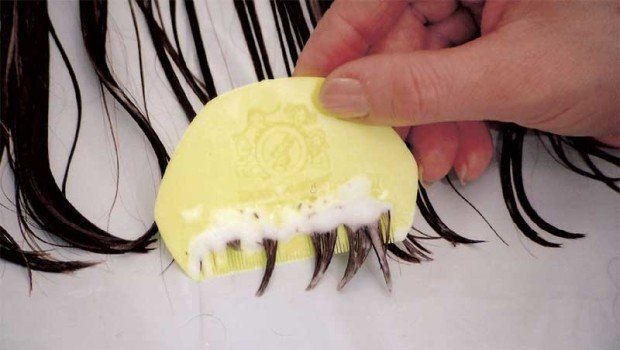Head lice are getting stronger, as the annoying pests are becoming increasingly immune and more resistant to the neurotoxins that are used to eradicate them. The result is that a simple case of head lice is not as easy to treat as it once was.
According to scientists, three genetic mutations have occurred within head lice to make them less vulnerable to pyrethroids, which are the pesticides present in most readily available lice treatments.
According to biological and environmental sciences professor at Southern Illinois University at Edwardsville Kyong Yoon, lice with these genetic mutations have become widespread across North America. The process of natural selection has made these stronger lice more likely to survive and reproduce to pass the genes to their offspring.
Meanwhile, parents are frustrated because traditional lice shampoos are no longer effective, and they are actually helping lice become stronger. Studies have shown that lice resistance to standard pesticides used in shampoos is the most common cause of treatment failure.
One study conducted by Professor Yoon and his colleagues showed that only five of 109 head lice populations that were examined did not have the genetic mutations representing pesticide resistance.
Furthermore, a 2012 study in Canada showed that 97% of all head lice samples that were studied featured the genetic mutations.
While these studies do not prove that standard pyrethroid pesticides can no longer combat head lice, it does increase the likelihood that head lice will be able survive such exposure.
Additionally, over-exposure to the pyrethroids can result in feelings of numbness, itching, burning and tingling that can last for hours.
Some parents have resorted to cutting the hair of their children short or even shaving their heads because of the ineffectiveness of the chemical shampoos. Other parents have resorted to killing the lice by using specialized combs, which is a very tedious task.
For now, parents are advised to take prevention measures by telling their children to avoid sharing products with other children and to stay away from children who have become infected with head lice.
Parents are also recommended to perform their own lice checks on their children on a weekly basis.
Any child that is discovered to have head lice should be isolated from others immediately until it is completely sure that all of the head lice have been removed.
Stay Connected